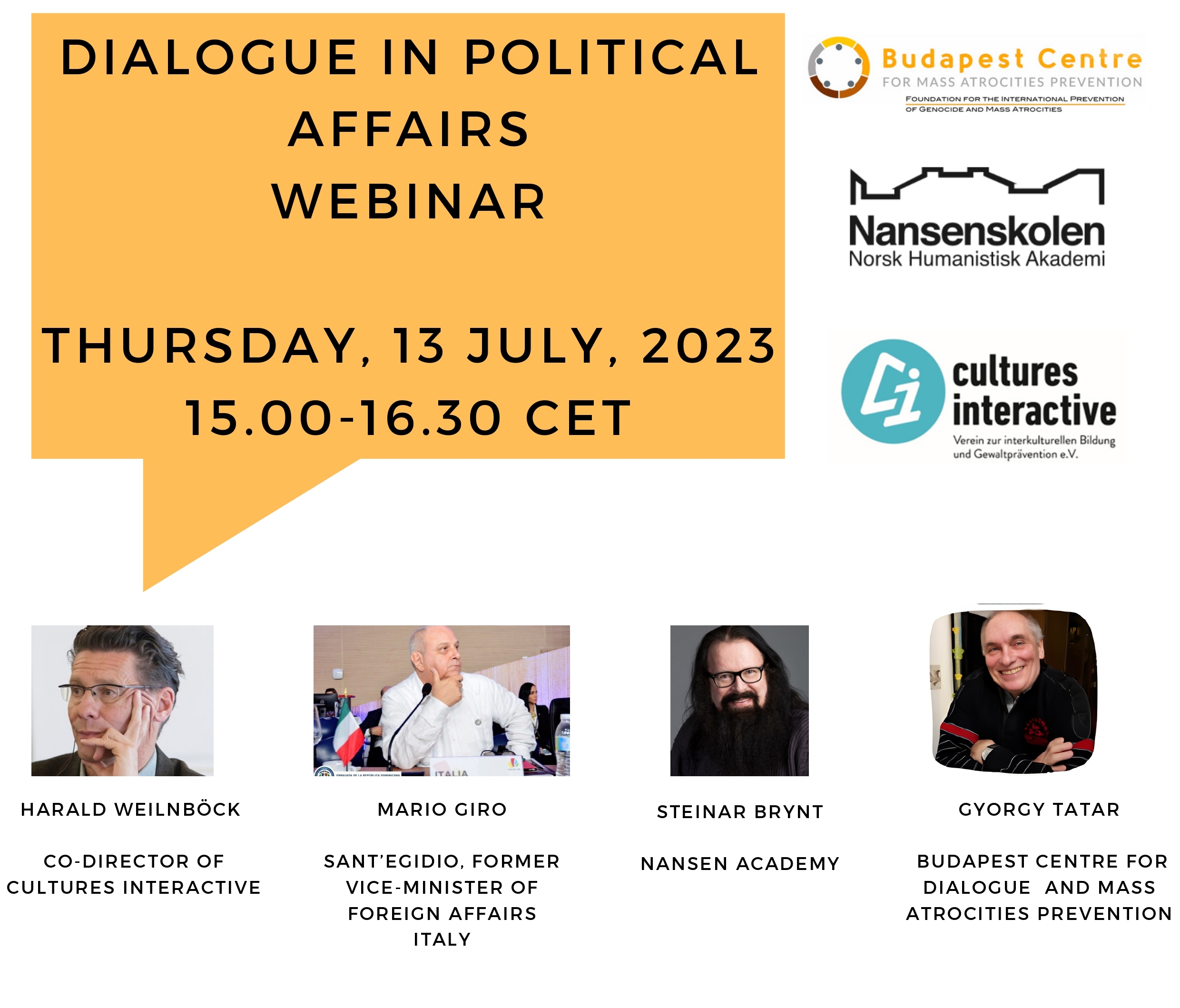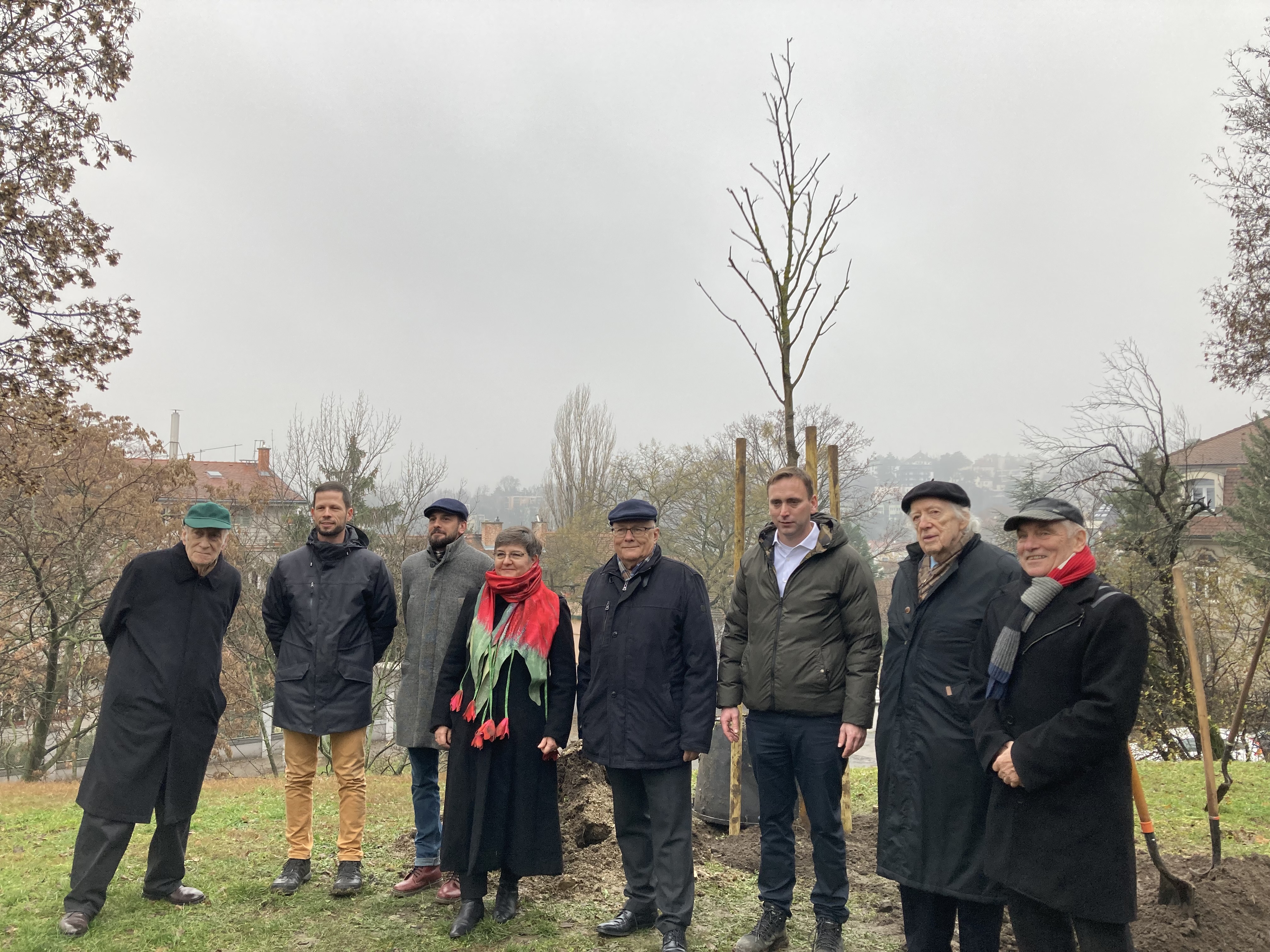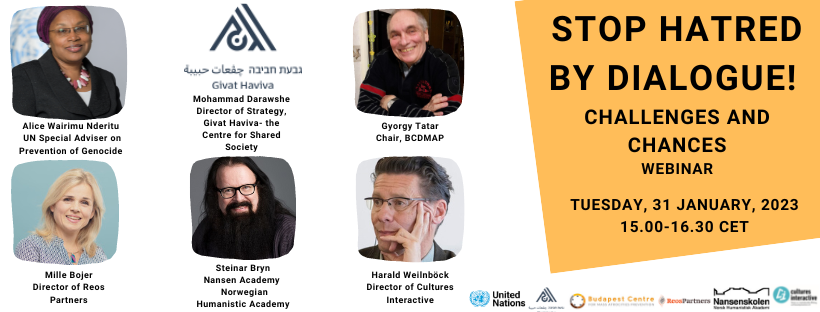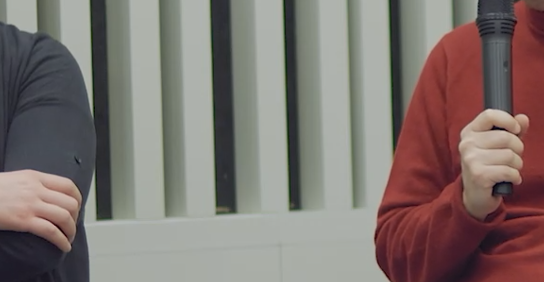- |
- Kategória: E-Youth Library
- |
- Kategória: E-Youth Library
Atrocity alert No. 354: Children and Armed Conflict, and Mali
Publication of the Global Centre for the Responsibility to Protect. Click here.
Atrocity Alert No. 353: Syria, India and Israel and the Occupied Palestinian Territory
Publication of the Global Centre for the Responsibility to Protect. Click here.
PODCAST - practical skills
The art of creating safe spaces for difficult conversations.
Click here to access this episode from the Oslo Forum with Annette Weber
ZOOMING on ten conflicts shaking the world this year.
PUBLICATION - The United States Holocaust Memorial Museum is deeply concerned about the dire risk of genocide in Darfur, Sudan. Check here.
More information about the recent developments in Sudan here and here.
PUBLICATION - In this article, Marco Respinti sheds light on the mass atrocities which took in Bangladesh at the beginning of the 1970s, which remain to this day, unacknowledged. Click here.
Publication of the Global Centre for the Responsibility to Protect. Click here.
Atrocity Alert No. 353: Syria, India and Israel and the Occupied Palestinian Territory
Publication of the Global Centre for the Responsibility to Protect. Click here.
PODCAST - practical skills
The art of creating safe spaces for difficult conversations.
Click here to access this episode from the Oslo Forum with Annette Weber
ZOOMING on ten conflicts shaking the world this year.
PUBLICATION - The United States Holocaust Memorial Museum is deeply concerned about the dire risk of genocide in Darfur, Sudan. Check here.
More information about the recent developments in Sudan here and here.
PUBLICATION - In this article, Marco Respinti sheds light on the mass atrocities which took in Bangladesh at the beginning of the 1970s, which remain to this day, unacknowledged. Click here.
- |
- Kategória: Events
- |
- Kategória: Events

In his introductory intervention Mr Harald Weilnböck (Cultures Interactive, 6:58 - 25:05) argues for the need to replace the concept of extremism and term of prevention in favour of dialogue, education and skill building. He explained while dialogue builds bridges and connections, extremism and prevention tend inspire a habitus of intercepting, fighting and countering, while looking for dangers and enemies, hence tends to break off potential bridges and connections. It often even generates discrimination. Mr. Weilnböck points out we need a change of paradigm in order to better support democracy. Furthermore, Mr. Weilnböck shortly argued for the alternative concept of Group focused enmity/hatred, and Authorianism used in Germany and shared some good practice standards.
Mr. Mario Giro (29:04 - 45:45) calling himself as non-institutional mediator gave an overview of his peace making activities. He explained through concrete cases the difficulties and weaknesses of track 1.0 and track 2.0 diplomacy, argued for the combination of the state-guaranteed diplomacy and the flexible peace initiatives of the civil societies and spoke about the dilemmas of track 1.5 diplomacy where he was involved through Sant’Egidio Community. By referring to various conflict situations, he questioned the concept of ''war as a solution for conflicts'' and shared some lessons learned during his activities whilst highlighted the differences between peace agreeements and societal reconciliation.
Mr. Steinar Brynt (48:45 - 1:13:10) spoke about the dilemmas and similarities of the war of thenineties in Western Balkans and the war between Russia and Ukraine since 2014. He pointed to the fact that through the intensification of the conflict situation between the two countries dialogue became increasingly difficult and ultimately stopped. He touched upon issues of nation states, revival of traditionalism, possibilities and limitations of dialogue, the relationship building methodology, why we do not embrace dialogue, can dialogue be counterproductive under conflict and the need for finding a common language with those representing other concepts.
Mr. Gyorgy Tatar (1:35:05 - 1:48:35) highlighted the background and main objectives of the draft Statement circulated prior to the webinar. He initiated the establishment of an international Alliance of Dialogue for institutionalization of the tool of dialogue in international and national decision- making processes and inclusion of dialogue-related issues in the national educational curricula as well as the enhancement of collaboration of dialogue practitioners. Mr. Tatar invited the participants to give feedback on the initiative in the next few weeks.
- |
- Kategória: E-Youth Library
- |
- Kategória: E-Youth Library
Since 2016, the EU Day Against Impunity (EUDAI) is celebrated on the 23rd of May under the auspices of the Presidency of the Council of the EU in cooperation with the European Commission, the Genocide Network and the European Union Agency for Criminal Justice Cooperation (Eurojust).
This event aims at raising awareness of impunity related to core international crimes, which encompass the crime of genocide, crimes against humanity and war crimes. Furthermore, it is intended to promote national investigations and prosecutions, to formally recognise the common efforts of the EU Member States and the European Union in enforcing international criminal law, to address the position and participation of victims in criminal proceedings for these crimes, and to reinvigorate Europe-wide commitment to the continuing fight against impunity for these crimes.
Watch this year's EU Day Against Impunity by clicking below.
This year, the EUDAI is part of the MLA Diplomatic Conference for the Adoption of the Convention on International Cooperation in the Investigation and Prosecution of Genocide, Crimes Against Humanity, War Crimes and other International Crimes. The aim of the Diplomatic Conference is to conduct formal negotiations that will result in the adoption of a new procedural multilateral treaty on mutual legal assistance and extradition in order to facilitate better practical cooperation between States investigating and prosecuting core international crimes.The draft Convention also foresees that State parties should establish extraterritorial jurisdiction over these types of crimes when the alleged offender is present on the State party’s territory.
This event aims at raising awareness of impunity related to core international crimes, which encompass the crime of genocide, crimes against humanity and war crimes. Furthermore, it is intended to promote national investigations and prosecutions, to formally recognise the common efforts of the EU Member States and the European Union in enforcing international criminal law, to address the position and participation of victims in criminal proceedings for these crimes, and to reinvigorate Europe-wide commitment to the continuing fight against impunity for these crimes.
Watch this year's EU Day Against Impunity by clicking below.
This year, the EUDAI is part of the MLA Diplomatic Conference for the Adoption of the Convention on International Cooperation in the Investigation and Prosecution of Genocide, Crimes Against Humanity, War Crimes and other International Crimes. The aim of the Diplomatic Conference is to conduct formal negotiations that will result in the adoption of a new procedural multilateral treaty on mutual legal assistance and extradition in order to facilitate better practical cooperation between States investigating and prosecuting core international crimes.The draft Convention also foresees that State parties should establish extraterritorial jurisdiction over these types of crimes when the alleged offender is present on the State party’s territory.
- |
- Kategória: Allience for Dialogue
- |
- Kategória: Allience for Dialogue
Dialogue Forum. Series of Interviews with Experts
The Budapest Centre for Dialogue and Mass Atrocities Prevention shares herewith an interview with researcher Dr. Thomas Peak on the contemporary challenges in mobilizing actors of the Global South to implement the Responsibility to Protect.
This interview was made by Dr. Gyorgy Tatar, President of BCDMAP, and Dr. Gary Uzonyi, the senior faculty research fellow of BCDMAP.
In this second episode of the series of interviews, we had the opportunity to exchange with Dr. Karen Smith, the UN Special Adviser on the Responsibility to Protect between 2019-2021
This interview was made by Dr. Gyorgy Tatar, President of BCDMAP, and Dr. Gary Uzonyi, the senior faculty research fellow of BCDMAP.
This series of interviews aims at shedding a light on the contemporary challenges to implement the Responsibility to Protect.
By that we continue our effort to provide space for scholars and practitioners to express their views on even controversial issues which impede the translation of the RtoP into action. Ultimately here, our goal is to provide space for the views of scholars and practitioners on the role of dialogue in bridging the conflict between universal human rights values and cultural relativism from the perspective of mass atrocity prevention.
By that we continue our effort to provide space for scholars and practitioners to express their views on even controversial issues which impede the translation of the RtoP into action. Ultimately here, our goal is to provide space for the views of scholars and practitioners on the role of dialogue in bridging the conflict between universal human rights values and cultural relativism from the perspective of mass atrocity prevention.
This interview was made by Dr. Gyorgy Tatar, President of BCDMAP, and Dr. Gary Uzonyi, the senior faculty research fellow of BCDMAP.
In this second episode of the series of interviews, we had the opportunity to exchange with Dr. Karen Smith, the UN Special Adviser on the Responsibility to Protect between 2019-2021
This interview was made by Dr. Gyorgy Tatar, President of BCDMAP, and Dr. Gary Uzonyi, the senior faculty research fellow of BCDMAP.
We elaborate on topics such as; the influence of the changing global world order on the implementation of RtoP, contemporary challenges of RtoP,
the role of dialogue in advancing consensus on RtoP between Global North and South and the skepticism of the Global South on the activities of the International Criminal Court.
the role of dialogue in advancing consensus on RtoP between Global North and South and the skepticism of the Global South on the activities of the International Criminal Court.
- |
- Kategória: Events
- |
- Kategória: Events
Prominent practitioners shared experiences on the significance and methodologies of dialogue as well as the challenges of dialogue facilitation in the Middle East, Western Balkans, Cyprus, and Germany.
The examples highlighted dialogue as an effective tool for preventing extremism and transforming hostile and complex conflict situations into sustainable peaceful processes.Check out the programme here!
Watch the recording of the event
- |
- Kategória: Dialogue
- |
- Kategória: Dialogue
Social peace requires social dialogue
On 16 December 2022, the Budapest Center for Dialogue and Mass Atrocities Prevention, in cooperation with the Second District Municipality of Budapest, planted the third Dialogue Tree in István Bibó Park.
- |
- Kategória: Dialogue
- |
- Kategória: Dialogue
Társadalmi békéhez társadalmi párbeszédre van szükség
2022. december 16-án a Budapest Központ a Párbeszédért és a Tömeges Atrocitások Megelőzéséért a második kerületi önkormányzattal együttműködésben elültette a harmadik Párbeszédfát a Bibó István parkban.


